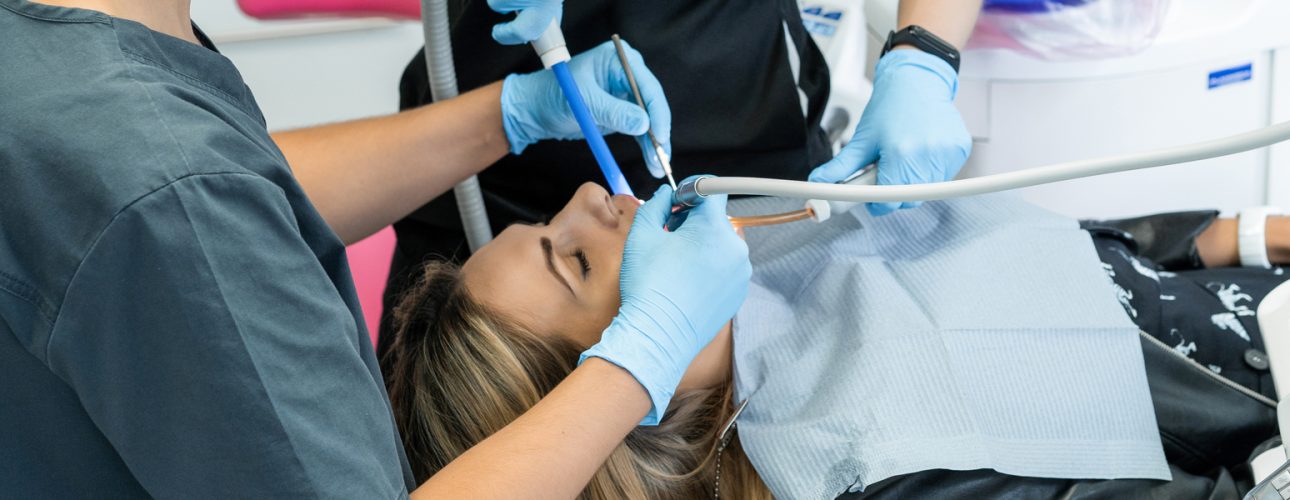Wisdom teeth removal refers to a very common dental procedure, especially in young adults. These third molars, which typically appear in your late teens or early twenties, can cause various dental issues. Preparing well for the surgery can help ease any anxiety and ensure a smooth recovery. By following the right steps, you set yourself up for success, both during and after the procedure.
Understand the Procedure and Its Necessity
Here’s a quick breakdown of what wisdom teeth are and why they might need to be removed:
- What Are Wisdom Teeth?
These are your third molars, usually appearing between ages 17-25. Some people have no issues, while others may face dental problems due to these teeth.
- Why Remove Wisdom Teeth?
Not every person needs to get their wisdom teeth eliminated, but it becomes necessary when:
- The teeth are impacted, meaning they’re trapped beneath the gums and causing pain.
- They lead to overcrowding, which can shift other teeth out of place.
- Partial eruptions cause infections or cysts, putting your oral health at risk.
- What Happens During Surgery?
Your dentist in 77584 will numb the area, make an incision to reveal the tooth, remove it, and then close the incision with stitches. The whole process typically takes less than an hour.
Follow Pre-Surgery Dietary Guidelines
Following your dentist’s instructions about food and drink before surgery is crucial. Here’s what you need to know:
- Why Fasting is Important
Dentists often recommend no eating or drinking after midnight before surgery. This helps avoid complications with the anesthesia.
- Avoid These Before Surgery
Say no to alcohol, caffeine, dairy, and heavy meals. These can interfere with how your body processes the anesthesia.
- What You Can Consume
If your dentist allows it, stick to clear liquids like water or light juices. But always follow your dentist’s specific instructions for your wisdom teeth extraction in Pearland, TX.
Arrange for Transportation and Support
Planning ahead will make the day of your surgery much easier:
- Arrange a Ride
Since you’ll likely be dizzy from anesthesia, it’s important to have someone drive you home. Don’t plan on driving yourself!
- Have a Support Buddy
It’s not just about the ride home—having a friend or family member stay with you during the first 24 hours is helpful. You may need assistance with tasks like eating, getting comfortable, or managing medications.
- Why You’ll Need Support
The first day after surgery can be challenging due to swelling, pain, and tiredness. Your support person will help ensure you’re comfortable during recovery.
Prepare Your Recovery Space at Home
A little prep goes a long way in making your recovery smooth:
- Stock Up on Soft Foods
Have soft, easy-to-eat options like mashed potatoes, applesauce, and yogurt ready to go. You’ll need to stick to these foods for a few days.
- Ice Packs for Swelling
Keep ice packs handy to reduce swelling. Apply them on and off every 20 minutes during the first 48 hours post-surgery.
- Set Up a Rest Area
Prepare a cozy space where you can prop yourself up with pillows. Staying elevated helps reduce swelling.
- Keep Pain Meds Nearby
Whether prescribed or over-the-counter, make sure your pain medication is within reach so you can manage discomfort as it arises.
Ask Questions and Address Concerns
It’s important to feel fully informed before your surgery. Here’s what to ask:
- Anesthesia Options
Ask about the types of anesthesia available, such as local anesthesia, sedation, or general anesthesia. The dentist near you can explain what’s best for you based on your situation.
- Recovery Timeline
Get a clear idea of how long the healing process will take, what the first few days will feel like, and when you can resume normal activities.
- Health Disclosures
Be upfront about any medications, supplements, or health conditions you have. This helps your dentist tailor the procedure for your safety and comfort.
Know What to Expect on Surgery Day
Here’s what you should prepare for on the day of your surgery:
- Morning Routine
Brush your teeth (without swallowing water), wear loose, comfortable clothing, and leave any valuables at home. Make sure your transportation is arranged in advance.
- During the Surgery
Once you arrive, you’ll be given anesthesia. Depending on what you and your dentist discussed, this could be local, sedation, or general anesthesia. The wisdom teeth extraction will typically be quick, and you won’t feel any pain during the procedure.
- After the Surgery
Once the teeth are removed, you’ll experience some swelling and minor bleeding. These are completely normal. Your dentist will provide gauze and instructions for managing bleeding. You’ll also get advice on pain relief, swelling control, and any signs to watch out for in case of complications.
Conclusion
Preparing for wisdom teeth surgery doesn’t have to be overwhelming. With the right preparation, the procedure can be straightforward and recovery smooth. Remember to follow the instructions given by your surgeon, stock up on the essentials, and don’t hesitate to ask questions. A little planning goes a long way in ensuring your surgery and healing process go as comfortably as possible.
Still have questions or are ready to book your consultation?
At Pearly Whites of Pearland, we’re here to help you every step of the way. Schedule your wisdom teeth consultation today and get personalized guidance from our experienced team. Share this guide with friends and family who may also need wisdom teeth removal!

